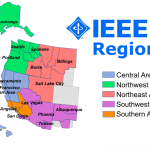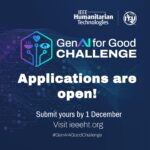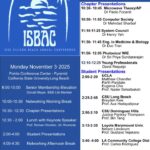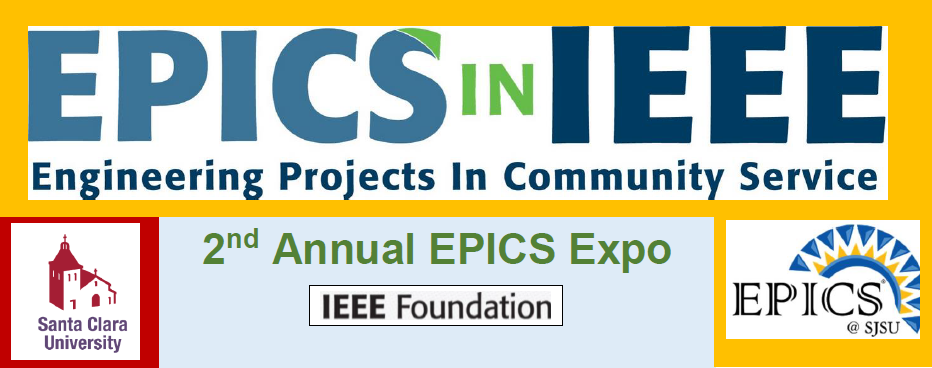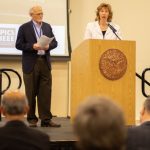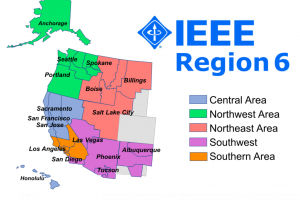Students’ Engineering Projects for Community Service
During the Second Annual EPICS (Engineering Projects in Community Service) Expo, held on March 4, 2020 at Santa Clara University, students from San Jose State University and Santa Clara University showcased their engineering projects created to solve environmental and social problems in Silicon Valley and beyond.
During the Expo, students presented technological solutions-based projects designed at the Santa Clara University’s Frugal Innovation Hub and San Jose State University’s Makerspace.
Student teams had the opportunity to network with corporate and nonprofit representatives, and received financial grants awarded to help bring their projects to market.
San Jose State University and Santa Clara University each received $10,000. The grants are made possible through the EPICS in IEEE program, a priority initiative of the IEEE Foundation.
See https://epics.ieee.org/santa-clara-epics-expo/
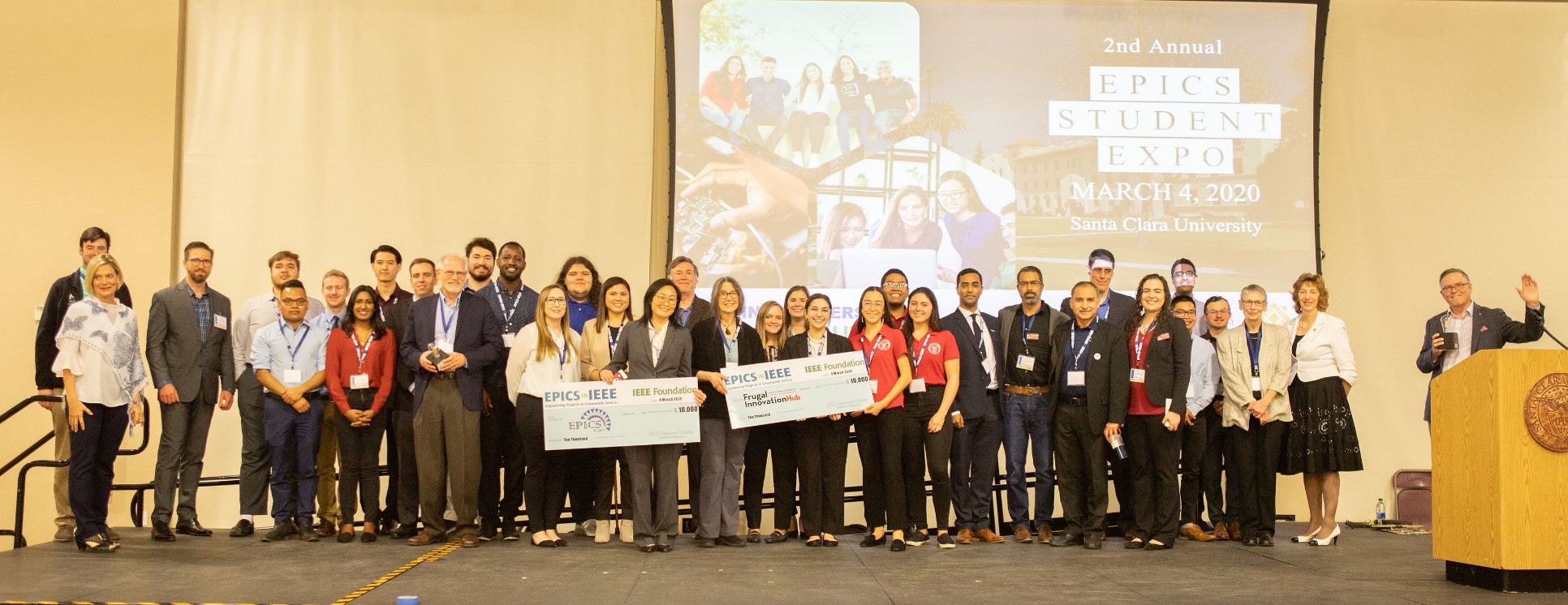
Speakers
- Dr. Tom Coughlin, IEEE-USA Past President (Master of Ceremony)
- Dr. S.K. Ramesh, IEEE Fellow, 2021 IEEE President-Elect Candidate, Director of AIMS2 and Professor of Electrical and Computer Engineering at CSU Northridge
- Karen Hardy, Santa Clara City Vice Mayor
- Erna Grasz, Asante Africa Foundation
- Jim Fruchterman, BeneTech,
Tech Matters.org - Dr. Jinny Rhee, Associate Dean of the Charles W. Davidson College of Engineering at San Jose State University
- Dr. Ruth Davis, Associate Dean Engineering at Santa Clara University
- Samarth Deo chair of EPICS in IEEE
Congressional Recognition
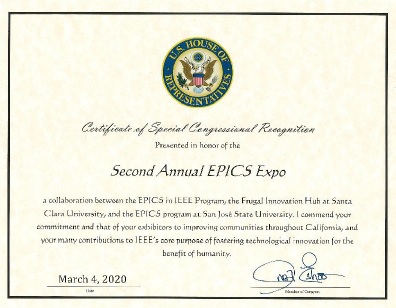 Congresswoman Anna Eshoo presented a Certificate of Special Congressional Recognition presented in honor of the EPICS Expo that reads: “I commend your commitment and that of your exhibitors to improving communities throughout California, and your many contributions to IEEE’s core purpose of fostering technological innovation for the benefit of humanity.”
Congresswoman Anna Eshoo presented a Certificate of Special Congressional Recognition presented in honor of the EPICS Expo that reads: “I commend your commitment and that of your exhibitors to improving communities throughout California, and your many contributions to IEEE’s core purpose of fostering technological innovation for the benefit of humanity.”
Congressman Ro Khanna’s representative, Galen Boggs, presented three Congressional Certificates: “In recognition of the passionate engineering students who are developing technological solutions to improve local communities,” to Frugal Innovation Hub of Santa Clara University, EPICS Program at San Jose State University, and EPICS in IEEE.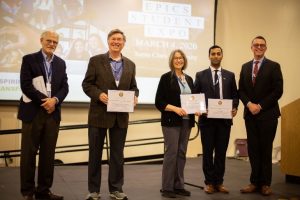
Left to Right: Dr. Tom Coughlin, Professor Keith Perry, Dr. Ruth Davis, Samarth Deo, and Congressman Ro Khanna representative, Galen Boggs, presenting Certificates of Congressional recognition to EPICS in IEEE, SCU Frugal Innovation Hub, and EPICS at SJSU.
IEEE Representatives
- Samarth Deo, Chair of EPICS in IEEE; Dr. Tom Coughlin, IEEE-USA Past President; Dr. S.K. Ramesh, IEEE Fellow/2021 IEEE President-Elect Candidate; Dr. Mostafa Mortezaie, IEEE Region 6 Educational Activities Chair; Taylor Winship, Chair of Clara Valley Section; Glenn Friedman, Past Chair of Santa Clara Valley Section; and Daniel Lottis, Past Chair of Special Interest Group on Humanitarian Technology (SIGHT), Michael Deering and Daniel DeLiberato, Development Officers at IEEE Foundation; and Ray Alcantara, Program Manager at EPICS in IEEE.
Faculty Support
- Faculty members from SJSU, Keith Perry and SCU Navid Shaghaghi, as well as Allan Baez Morals, the Director of Programs and Partnership at Frugal Innovation Hub were instrumental in the success of this event.
Awards
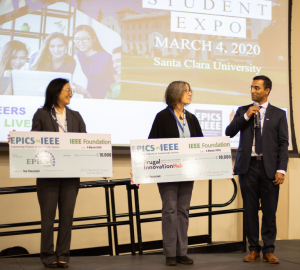
San Jose State University students received $10K for three projects. Santa Clara University students received $10K for four projects. The grants, awarded by EPICS in IEEE, were made possible through donations to a dedicated fund administered by the IEEE Foundation. Dr. Jinny Rhee, Associate Dean of the Charles W. Davidson College of Engineering accepted the SJSU Award while Dr. Ruth Davis, Associate Dean of Engineering accepted the Santa Clara University Award.
Students Presentations
Students presented their projects by using poster boards showcasing heir prototypes and conducting a brief PowerPoint presentations to attendees.
San Jose State University EPICS Projects
Automated Water Testing System for Aquaponics
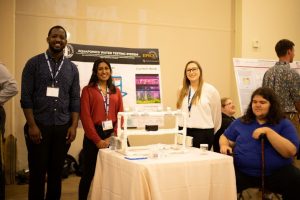
Modern aquaponics provides a technique that improves agricultural environmental sustainability and to reduce the global impact of food cultivation. Aquaponics enhances agricultural methods by incorporating aquaculture (fish farming) and hydroponics (soil-less farming). The combined system sustains plant growth through essential nutrients found in fish waste while the plants serve as a natural bio-filter to remove any harmful by- products. A current exhibit of a soilless vegetable garden and a large aquarium housing various freshwater fish from the first phase of this project is on display at The Tech Interactive in San Jose, CA.
3D Printer Recycling System for a Makerspace
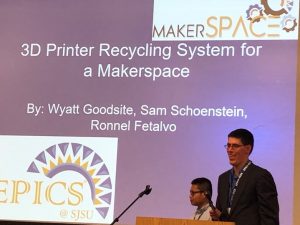
Although 3D printer filament is expensive to buy on the market, it is fairly inexpensive material since it is made from standard plastics such as polylactic acid (PLA) and polyethylene terephthalate (PET). These plastics are not difficult to reuse and recycle due to their physical characteristics, yet without the correct recycling process and infrastructure, there is no way for the space to recycle them in house. By using the makerspace resources and equipment available, the EPICS team will construct the infrastructure and machines to recycle waste material from the 3D printers to be reused continuously by the 3D printers, making the 3D printing process in the makerspace much more efficient and affordable. This will be done by separating, cleaning, shredding, and extruding waste 3D printer material back into usable 3D printer filament that students may use for their designs. It will also allow the space to utilize waste post-consumer plastics such as water bottles, food containers, and much more, for 3D printer material, which will reduce the amount of money that the space spends on new 3D printer material.
Spartan Autonomous Surface Vehicle (ASV)
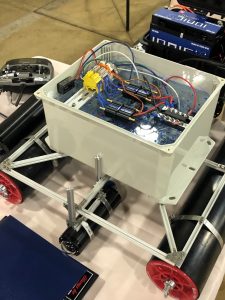
Analyzing fish populations in rivers and creeks is vital to maintaining the biological diversity and health of ecospheres around the world.
The Spartan Autonomous Surface Vehicle (ASV) will traverse the surface of the water to monitor the life cycles of Chinook salmon and steelhead trout in the Guadalupe River in San Jose, CA and will integrate an underwater sonar sensor and camera that will capture images of live fish. The Spartan ASV will also capture live video feed with correlated time and geolocations stamps allowing the user to be able to locate and identify fish carcasses in the river.
It will use adaptive sensing and onboard propulsion within a specially designed watertight craft. With sonar, GPS, WiFi, battery management, and a Microcontroller, Spartan ASV will navigate on its own without any user inputs. It will come equipped with two camera systems, one for live video streaming and the other for images. Further analysis of collected data will be used to spread awareness and take measures to improve the fish populations.
Santa Clara University EPICS Projects
Design for Cultural Preservation Center for Nez Perce tribe
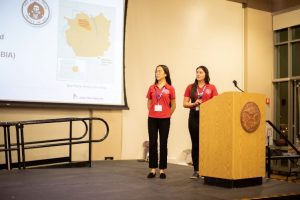
The goal of this project is to produce a set of preliminary structural plans for the Cultural Resource Program in the Cultural Preservation Center located within the Nez Perce Tribal Reservation community in Lapwai, Idaho. Ideally, this Cultural Preservation Center will have office space for approximately 50 to 70 staff members with a conference room in addition to a viewing room for ethnographic research, lab space for the archaeological program, and classroom space for language education efforts.
MilkGuard
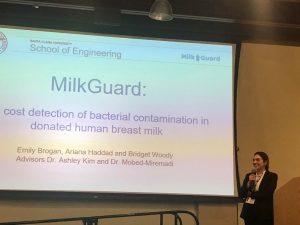
The paper-based breast milk sensor is designed to test for the presence of pathogenic E. coli in donated human breast milk. The goal of this project is to ensure distributed human breast milk post-pasteurization is safe for infants to consume without the use of traditional lab culturing methods.
HA (Hydro-System Automation)
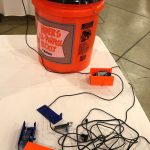
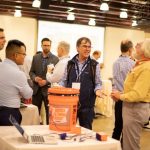
Hydration Automation is an energy efficient, small form factor system for automation of irrigation systems. The generous 2019 EPICS in IEEE funding was used for the prototyping of 3D-printed weatherproof casings as will be reported in IEEE GHTC’s proceedings and for the development of a communications subsystem. With the 2020 EPICS in IEEE funding the team will prototype and build the final remaining part of the system.
Disaster Relief Communications Box.
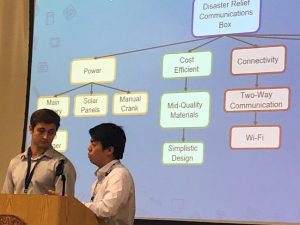 Global warming poses the greatest threat to humanity and all around the world people experience the effects of it. There has been a sharp increase in the amount of natural disasters everywhere and so people are constantly put in survival situations. First responders of these natural disasters are the people at the front lines that are able to save countless lives. They need to be equipped sufficiently to make sure as many lives can be saved as possible, including their own. During a natural disaster, one of the most important resources that tends to be unavailable is communication. There are some simple forms of communications, but they all have problems associated with them. This team is proposing the creation of a prototype of a “Natural Disaster Communication Box”. Some key features of the box include: three different power sources (the device will be able to seamlessly switch between each), long range connectivity, and ruggedness/weather proofing. The team wanted to include three power sources because one of the main problems with emergency equipment is reliability during the most crucial times. There will be a solar panel, hand crank, and large back-up battery cell. The device will be able to monitor the charge, the functionality of the power source, and switch between the three power sources based on the functional and situational conditions. In terms of connectivity, they plan on implementing an iteration of a radio and some form of messaging.
Global warming poses the greatest threat to humanity and all around the world people experience the effects of it. There has been a sharp increase in the amount of natural disasters everywhere and so people are constantly put in survival situations. First responders of these natural disasters are the people at the front lines that are able to save countless lives. They need to be equipped sufficiently to make sure as many lives can be saved as possible, including their own. During a natural disaster, one of the most important resources that tends to be unavailable is communication. There are some simple forms of communications, but they all have problems associated with them. This team is proposing the creation of a prototype of a “Natural Disaster Communication Box”. Some key features of the box include: three different power sources (the device will be able to seamlessly switch between each), long range connectivity, and ruggedness/weather proofing. The team wanted to include three power sources because one of the main problems with emergency equipment is reliability during the most crucial times. There will be a solar panel, hand crank, and large back-up battery cell. The device will be able to monitor the charge, the functionality of the power source, and switch between the three power sources based on the functional and situational conditions. In terms of connectivity, they plan on implementing an iteration of a radio and some form of messaging.
About EPICS in IEEE
EPICS in IEEE https://epics.ieee.org/ empowers students to work with local service organizations to apply technical knowledge to implement solutions for a community’s unique challenges. In this way, EPICS in IEEE not only assists communities in achieving their specific local community improvement goals but also encourages students to pursue engineering for community improvement as a career.
__________________________________________
About EPICS at San Jose State University
EPICS@SJSU http://www.sjsu.edu/epics/ is a service-learning program in the Charles W. Davidson College of Engineering at SJSU. Multidisciplinary teams of students serve local community partners by designing and building custom engineering solutions.
__________________________________________
About Santa Clara University and the Frugal Innovation Hub
Sponsored by the School of Engineering, the Frugal Innovation Hub (FIH) https://www.scu.edu/engineering/labs–research/labs/frugal-innovation-hub/ mission is to engage students and faculty in humanitarian and sustainable projects through partnerships and programs.
__________________________________________
EPICS in IEEE relies on the generosity of donors, like you to enhance and expand its program. Please donate to the EPICS in IEEE Fund via IEEE Foundation’s safe and secure online process: https://www.ieeefoundation.org/Support_EPICS
_____________________________________
For additional information, contact Mostafa Mortezaie, IEEE Region 6 Educational Activities Chair mortezaie@ieee.org
